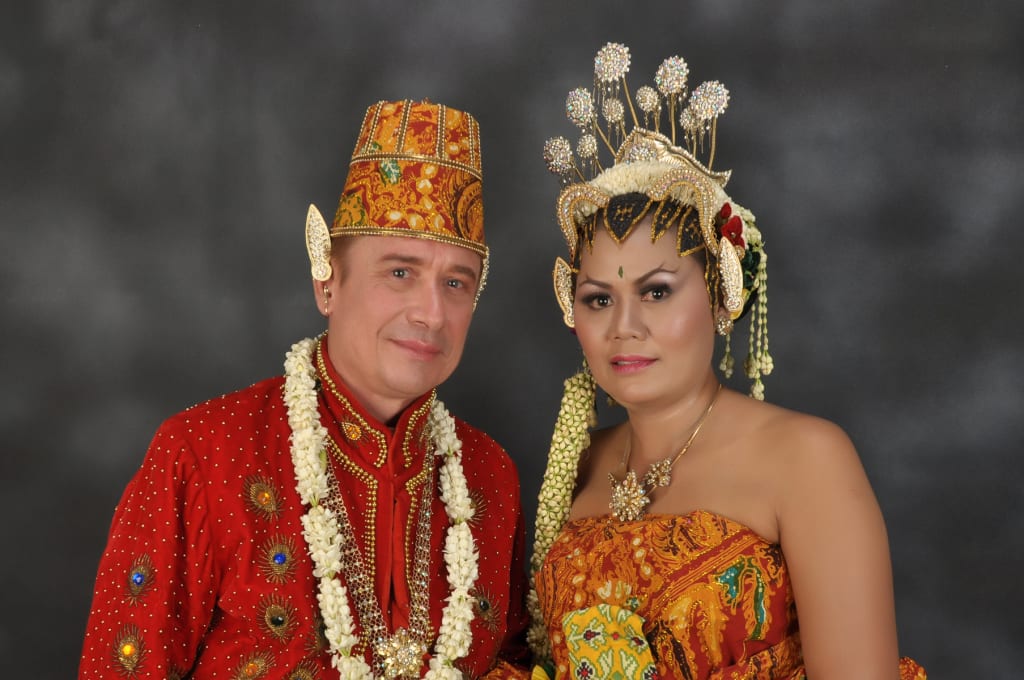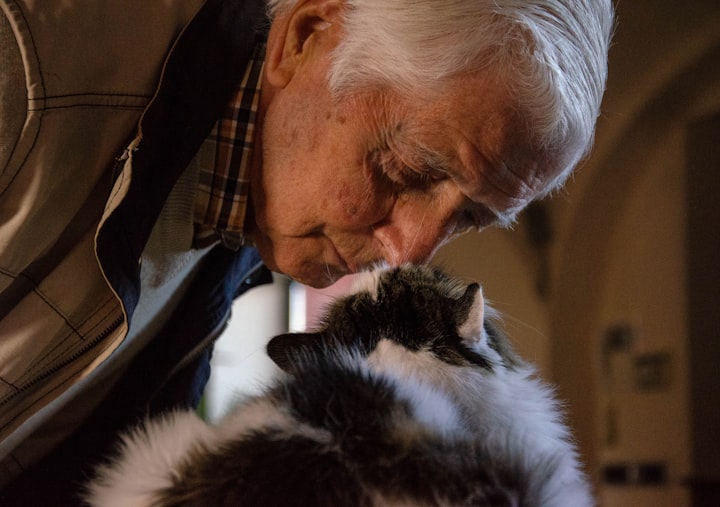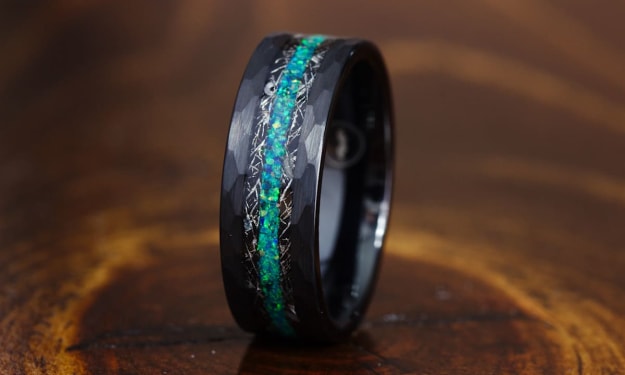Will You Marry Me
The challenge of interracial marriage

It's not every day you're going to ask or someone drops the question on you "Will You Marry Me." The chances are if you're in a relationship it will come. Or, there's the defining moment just what kind of relationship are you in.
I'll skip the divorce rate Google data and get on with the story.
On our auspicious wedding day, I woke up in Tuti's rickety bed in what used to be her bedroom at Uncle Matt's.
Tuti and I were both non-denominational (our secret) which was illegal in the country my wedding would take place in Indonesia.
The 18,000 island archipelago is a multifaith country and officially recognizes six religions - Islam, Protestantism, Catholicism, Buddhism, Hinduism, and Confucianism.
We had to pick one faith.
Her family was Muslim and frowned that we were living together for over a year out of wedlock. Tuti's parents had passed away and I got a serious marriage sales pitch from her family.
I didn't have an excuse for not marrying her except I felt uncertain about my future and couldn't speak her language. It was a big, scary step into another unknown but not any different from the unknown step I took when I moved to Bali.
She was 36 and I 59.
Going forward, though, the age gap didn't matter. We had figured out that age wasn't as important as language. We were living happily together while booking my guest house and practicing our vocabulary.
I didn't care that she couldn't read my biography and understand where I came from.
In time, I believed, we would come to understand and embrace each other's worlds. At least, we both showed an eagerness to try.
Not many women can speak English in Indonesia. Most I had met were domestic workers, shop tellers, and waitresses.
Tuti was the first Javanese woman I met. There was a lot I didn't understand about her culture.
Marginally educated, she was caring, humble, and malu (shy).
Tuti had never heard of The Occupy Movement, women's liberation, feminism, the # MeToo movement, and Woodstock or 9/11. She knew little about the United States, except for a few pop stars and the name of the President.
I thought for no other reason, the language alone made this relationship a long shot. I concluded the glass was half full not half empty.
The pink cement walls of her Uncle's house showed their age by the length of wall cracks. A century-old, black-and-white photo hung sideways above the door.
The one low-watt ceiling light cast a pale twilight across the room.
The house vibrated with a dozen Javanese women, young and old. Wearing traditional Javanese headscarves (hijab), the women sat in a circle on the floor.
They chopped up cooked chicken, vegetables, rice, and chili sauce into assembled gift-wrapped boxes of food.
Others cleared the living room of furniture.
By the time I drank a cup of coffee, Tuti was off to a salon. During the early hours, my only morning task was to bathe in a bucket of cold water.
I took a stroll through Tuti's village.
I tiptoed down a busted-up pathway of chicken poop and out to the main road. I also avoided the creek of raw sewage that crisscrossed my path. To my surprise, I saw no wild dogs as seen in Bali.
In her village, feral cats, and pet birds seemed to be the pets of choice.
In stark contrast to the lush botanical garden of Ubud, Bali the Javanese village consisted of small houses built side by side called a kampung.
Flower pots, colors of red, blue, pink, and green, helped to brighten up the weather-beaten buildings. Terraces and front yards with laundry lines opened to the neighborhood.
I felt welcomed.
Having fun, children snapped the ceremonial pecut whip and chased each other.
The power line was full of stuck kites and the air was cloudy with burning rubbish.
Some greeted me in English, "Gerd m-o-o-ning, Miztrrr."
Women held their babies out to me, smiled, and blushed.
I could only imagine what they thought. For the first time, Mr. Bean came out of their TV set and stood in their village. I got a rock star treatment I never took for granted.
The thought of getting married again did not weigh on my mind.
When I turned a corner to circle the village, I ran into a pengamen. This is a type of street performer. He is similar to the street guitar players who sing at car windows at the stoplight. The pengamen goes door to door, hoping for a donation. The young man was dressed in drag, singing with a portable karaoke machine in his hand.
The 3 pm mosque speakers reminded me of the time to head back.
My wedding was in Javanese, Islam. The ceremony is a unique, ancient cultural tradition. It is filled with beautiful music, art, folklore, magic, and mysticism.
Hour by hour, Uncle Matt's house filled with family and relatives. They had only one new name to remember.
I could not remember or pronounce their names. I greeted them in the best way I knew how. They arrived in their best sarongs, (a cloth wrapped around the waist) peci (Muslim) hats, and colored hijabs. Each smiled and gave a slight bow, then took their place on the living room floor.
Tuti wanted to forego the groom's traditional "Aladdin-looking" attire.
Instead, she asked Uncle Matt to outfit me in one of his old business suits.
I would have bought a new suit but it was too late.
I squeezed into a jacket and pants that smelled like musty old shoes. Uncle Matt sprinkled me with cologne, which did not enhance the odor. I had a pair of new black shoes and socks and a gold-colored tie.
I wore a traditional peci hat edged with golden leaves.
When I looked in the mirror, I saw a new me. Not a sorrowful man defined by his relationship failures.
I straightened my tie and hat and said to my reflection, "Today is the first day of the rest of your life!"
Pak (Mr.) Modin, the elderly holy man, arrived and Tuti and I sat on the floor at a table. He sat across from me and asked me to recite my vow.
When I said it, he shook his head. I memorized the wrong vow, so he wrote a new version.
Tuti's semi-English-speaking cousin said, "You have a few minutes to get the new one right. Or recite it in front of everyone until you do."
I practiced: Saya berjanji, dalam kejujuran dan ketulusan, menjadi bagi anda suami yang setia dan membantu.
Rough translation: "I take you to be my lawful wedded wife." And unbeknown I was also converting to Islam.
The mix-up occurred because wedding vows, ceremonies, and rituals vary in Jawa from region to region.
After my first attempt to recite the new vow, Pak Modin smiled in approval.
After I struggled through my vow, Tuti's older brother, Kamid, stood in for the ceremonial role of her father. When her turn came, Tuti glowed like a widodari (goddess) and recited her vow.
We sat before Pak Modin and in the presence of her admiring family. Lacking a guide or interpreter I didn't have a clue what was going on.
I misplaced the ring.
I handed the dowry at the wrong moment, and, to the delight and amusement of her family, reversed our roles. Everyone thought I was funny.
Tuti looked wonderful in her white, lacy wedding gown called the kebaya and I held her hand for a photo.
We could now share Tuti's old bedroom without shaming the family. The ceremony was followed by a prayer and a reception line. I touched each person's hands to my forehead in honor of the almighty, Mohammad.
We weren't quite married yet.
The village authorities looked over my papers and said we were not legally married.
Therefore, we could not live together.
Our requisite marriage book traveled through a labyrinth of government offices until it ended up in the Department of Religious Affairs.
There we faced the director, Mohammad Bejo, a stocky, middle-aged man wearing a batik shirt, and a black peci.
We were told that the American Consulate's permission to marry letter lacked an American flag stamp on it.
It was all a big misunderstanding.
The American flag stamp issue was finally overlooked but the documents claimed that I was Muslim. I did not approve of that. Nor was I asked. I followed no organized religion and neither did Tuti but if we wanted to live together as man and wife I had to go along with it.
My marriage book was green and Tuti's book was red. The photo looked like me, but the name of my dad, my birthdate, and my birthplace were misspelled.
Tuti and I signed the marriage documents, shook the director's hand, and thanked him.
We celebrated our 10th anniversary.
As time went on we improved on each other's language. It will take a lifetime before I understand her Javanese culture but I am a lifelong learner and going with the flow is in my nature.
I want to point out that in my two first marriages, we spoke English. And that is still no guarantee you will understand each other!
Regardless of skin color, language, religion, or culture, you're either going to jell with your significant other or not. It boils down to love and everything that comes with it like loyalty, acceptance, and respect. Any other differences can be navigated.
Don't worry about what other people think. Live your life.
Happy Valentine's Day
About the Creator
Arlo Hennings
Author 2 non-fiction books, music publisher, expat, father, cultural ambassador, PhD, MFA (Creative Writing), B.A.






Comments
There are no comments for this story
Be the first to respond and start the conversation.